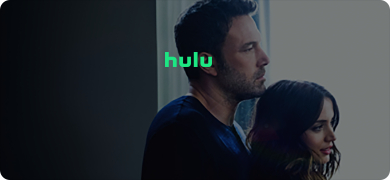Social media has turned into a platform where people showcase themselves. However, sharing personal details on these sites can harm you by increasing your exposure to cyber crimes and scams. To ensure your safety online, we've put together some simple tips to safeguard your social media privacy and guarantee a positive networking experience.
How Can We Protect Your Personal and Private Information on Social Media?
You should know how can you protect yourself on social networking sites. That's why we're here to help you prevent enemy attacks against you.
#1 Read the Privacy Terms
Social media sites have privacy terms that explain how your information will be used. Before signing up for an account on any platform, take the time to read and understand these terms. Pay attention to what information you'll be sharing and who it can be shared with. Make sure you know if you can delete your content permanently. Protect your privacy by being informed about social media privacy terms.
#2 Keep your Location Private
When you share vacation photos, you let people know you’re not at home. Collect them during the trip and post them once you’re back. And, don't post about your daily routines - this information could help stalkers or thieves figure out your whereabouts. Stay safe by being discreet online.
#3 Check your Settings
Protecting your privacy on social media is more important than ever. Recent whistleblowers and new laws like California's CCPA have put pressure on social networks to provide ways to safeguard your information. However, these platforms won't necessarily guide you on the best settings for your needs. By regularly checking your settings, you can choose what information you want to keep private. Take control of your privacy with an annual check-in.
#4 Be Careful of Bots
Beware of bots as they're becoming more prevalent among hackers looking to access your personal information on social media and manipulate algorithms. Stay alert for form comments and messages from unknown bots since Instagram is flooded with fake accounts that impersonate friends and ask for personal information, financial aid, or click on phishing links. By engaging with these accounts, your account could be at risk of being cloned. Stay safe online and protect your personal information.
When calling from unknown numbers, you should use a call recorder. Thanks to this, you can always prove your case in those issues that were discussed over the phone. You need an iPhone call recorder app from a trusted developer that will store call recordings. Recording calls with iCall is easy. First, you need to install the application from the Apple App Store, and then connect it to your conversation. Phone recorder iPhone works in conference mode, recording the entire conversation. Another plus - there is a free trial version.
#5 Limit the Personal Information You Share
Safeguard your privacy on social media by taking a less is more approach. Avoid sharing sensitive information like your phone number and birthday, and leave the "About Me" fields blank. Customize your personal information on each platform according to its purpose - share your email and education on LinkedIn, but skip the birthday. For Facebook, only keep the necessary information for connecting with friends by deleting unnecessary details like email, occupation, and hometown. Enjoy the benefits of social media without sacrificing your privacy by being selective about what you share.
#6 Biographical Information
When making social media accounts, you must give personal details like your name, age, and address. However, keeping this information safe is vital to avoid cyberattacks. A smart move is to modify your privacy settings to limit the personal info visible to others on the platform.
#7 Delete Old Accounts
Did you realize that 70% of American adults use social media regularly? However, managing multiple accounts can put your sensitive personal data in jeopardy, even if you don't go on those platforms anymore. Don't let companies profit from your information. It's essential to act fast and protect yourself now. Begin by removing any accounts that you don't use. This quick and easy step decreases your online footprint and decreases the likelihood that your data will be compromised. Take charge of your safety and security right away.
#8 Be Careful About Posting Photos Online
Think twice before sharing photos on social media to avoid potential risks. Even innocent pictures of your child can disclose personal information. Stay cautious when sharing pictures that disclose your location as it could make you and your loved ones susceptible to cybercrime. Adopt safe online sharing practices by being mindful of your post content. Stay smart and stay safe.
#9 Create Strong, Unique Passwords
Don't make it easy for hackers to access your personal information. Create strong and secure passwords that don't include obvious details like your name, birthday, or phone number. And definitely steer clear of common choices like "password" and your username. By taking these basic steps, you can rest assured that your data is safe and secure.
#10 Use a 2FA
Protect yourself online with two-factor authentication, which adds an extra layer of security to your social media accounts using a unique one-time code along with your password. This code, generated via an app or text message, expires quickly, providing optimal security. With two-factor authentication, hackers require not only the correct code but also the correct device to gain access. We recommend utilizing an authenticator app like Google or Microsoft to achieve maximum safety. Don't delay any further, activate two-factor authentication today and enjoy a secure online experience!
Conclusion
Social media can be a great way to stay connected with friends and family. But if you're not careful, it could put your personal information at risk. To protect yourself online, limit the personal details you share, choose strong passwords, use two-factor authentication, and only post photos that don't reveal too much about your location or identity.







